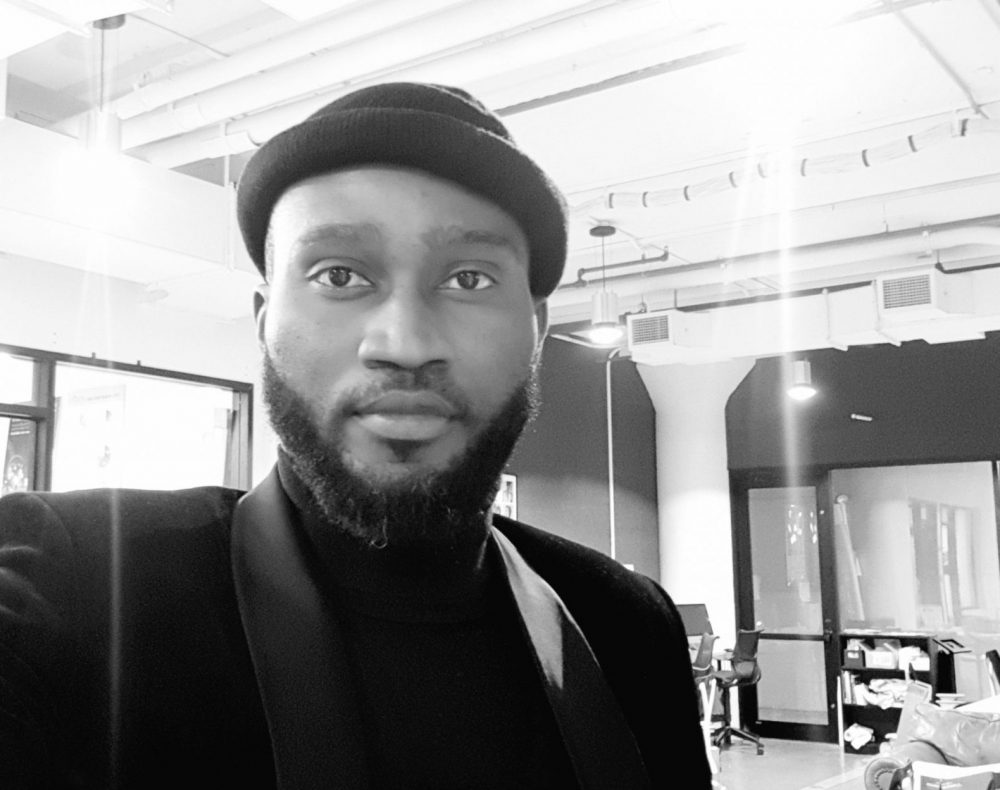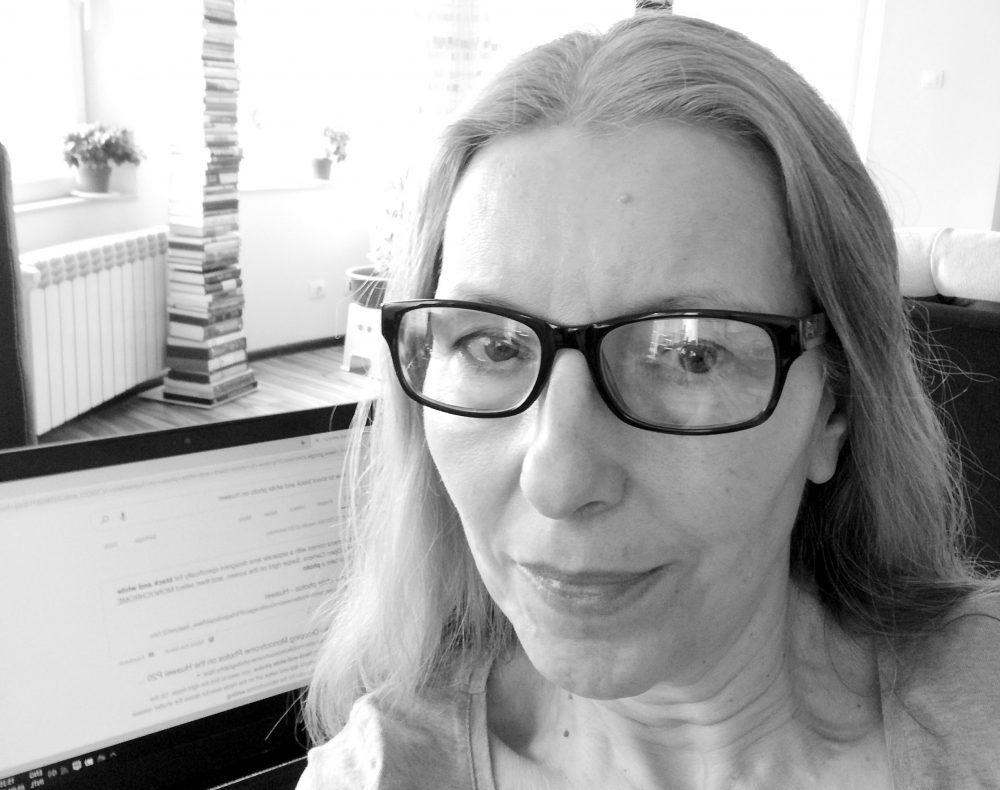As Russia’s war against Ukraine rages on in Europe, Dimitrina Petrova’s BOLD is at the forefront of mobilizing Bulgaria’s civil society response, writes Ohimai Amaize.
Seven years ago, while still executive director of the Equal Rights Trust, a London-based NGO she co-founded, Dimitrina Petrova oversaw the production of a report that focused on Ukraine. “It’s entitled ‘In the Crosscurrents: Addressing Inequality and Discrimination in Ukraine,’ and it has a lot about the Donbas region and how the Russians were treated and whether or not their grievances would lead to conflict,” Petrova told me in an interview over Zoom on March 18, citing the report to demonstrate her understanding of the context of Russia’s invasion of Ukraine. Among its conclusions, the report found that relations between ethnic Russians—who constitute the largest ethnic minority in Ukraine—and the majority were “historically good, with no evidence of ethnic discrimination.” But research revealed that the 2014-2015 conflict had increased tensions between the two groups. The divide within Ukrainian society that was exploited and exacerbated by Russian President Vladimir Putin, Petrova explained, was not based on ethnic or linguistic identity but rather on geopolitical preference among Ukrainians—whether to align with democratic Europe or with increasingly self-assertive Russia. “However, Russia always mischaracterized the divide as ethnic and linguistic,” Petrova said. “This is why defending the pro-Russia separatists in Donbas that had allegedly been victimized by Ukrainian ‘nationalists’ and resistance to intended NATO expansion underpinned official Russian propaganda of ‘denazification’ and ‘demilitarization’ of Ukraine.”
Petrova’s rich knowledge of the European civil society landscape cuts across decades of human rights work. She was the founding executive director of the European Roma Rights Centre; Director of The Human Rights Project in Sofia, Bulgaria; consultant to the UN Office of the High Commissioner on Human Rights, Human Rights Watch, the World Bank and other organizations; and adviser to the President of Bulgaria on pardoning prisoners. In 2018, she was also a Reagan Fascell Fellow at the National Endowment for Democracy in Washington, DC, during which she devised new strategies for civic activism in East-Central Europe.
From her experience working with Human Rights Watch during the Bosnian war to her current efforts with Bulgarians Organizing for Liberal Democracy (BOLD), Petrova is no stranger to the dynamics of mobilizing civil society response in conflict situations. Although, the news of Russia’s invasion of Ukraine did not come as a surprise to her, Petrova said she lost sleep during the first week of the war. “I hardly slept because I kept seeing nightmares. I saw myself as if I was one of the refugees, carrying a small child and going through the night. It was such a heartbreak to see what was going on,” she said.
Three days after the war began, leaders of over 100 Ukrainian civil society groups issued an appeal calling on the West to stand with Ukraine. Called the Kyiv Declaration, it included the following six immediate humanitarian and military demands: 1) establish safe zones in Ukraine; 2) provide immediate defensive military aid—including lethal and non-lethal assistance; 3) implement crippling sanctions to undermine Putin’s war machine; 4) provide immediate humanitarian aid; 5) freeze the assets and revoke the visas of Putin’s cronies; and 6) immediately provide equipment to track war crimes.
Since the declaration, Russia’s invasion of Ukraine has been met with stiff sanctions from the West while Ukraine continues to receive billions of dollars in humanitarian, military, and economic aid. For Petrova, the Kyiv Declaration is not only a remarkable example of immediate civil society response in a crisis situation, it has also formed the basis of BOLD’s response in the wake of the invasion.
“I don’t know how they even managed to do that,” Petrova said, commending the swift response by Ukrainian civil society groups amid the outbreak of war. According to Petrova, BOLD has formulated ten asks or recommendations in response to the war, its impact on Bulgaria, and the broader implications for Europe. “But first and foremost, we condemned Russia’s invasion of Ukraine because Russia is the aggressor.”
“In the last ten days preceding the war, there were all those streams of refugees leaving the Donbas area and going into Russia one could see on Russian TV channels. Images of mothers and children going to temporary accommodation, speaking to the media and begging Russia to intervene and stop this nightmare which was characterized by the Russian media as the result of the Ukrainian army targeting civilians,” Petrova said. This buildup to the war created an impression, for Russian watchers, that Putin was morally forced to intervene in Ukraine to help innocent Russians in Donbas.
“One thing is clear. We have an aggressive war which is unlawful, unprovoked, and absolutely criminal, and therefore we have no other political or moral choice but to side with the victim, with Ukraine,” said Petrova, who received the Human Rights Award from the American Bar Association in 1994.
BOLD’s first recommendation, which emphasizes the first demand of the Kyiv Declaration, identifies the need for the establishment of safe areas. “The idea is that in a safe area where you have civilians, any military action or hostilities is prohibited, and that’s enforced by an international peacekeeping force,” Petrova told me. “It reduces civilian deaths and it reduces the refugee flows out of the country, because people would be internally displaced, but it’s a bit easier if they’re in their own country.”
Petrova said the failure of the United Nations and its leadership to prevent the war or mitigate the ongoing devastation is the reason for the second, very important part of BOLD’s recommendations. “Where is the UN? I am outraged. Either they’re doing something very good behind the scenes and we simply don’t know, and then gloriously something will emerge at one point and we’ll say bravo, or this United Nations has outlived its legitimate existence,” she told me.
Meanwhile, UN Secretary General Antonio Guterres has described the Russian invasion of Ukraine as the “saddest moment” of his tenure. “In the name of humanity, bring your troops back to Russia,” he urged Putin on February 24, the day Russia invaded Ukraine. “Do not allow to start in Europe what could be the worst war since the beginning of the century.”
But Petrova described the UN stand as “weak” and “a disappointment, not only in Ukraine but also in respect to COVID in the last few years.” For the UN to redeem its name and live up to its mission, Petrova said the UN must expeditiously engage all available avenues and mechanisms; work towards a ceasefire and then an armistice; create safe areas; send international peacekeepers to enforce the safe areas; and then eventually convene a world peace conference on Ukraine with the participation of the legitimate Ukrainian government. “That’s how wars ought to be handled by the UN. That’s the steps that they must take. We have no evidence that these steps are being taken.”
In its ten asks, BOLD welcomed the investigation of the International Criminal Court into alleged war crimes in Ukraine. As BOLD awaits a full investigation of the human rights abuses documented during the war, Petrova said there is “some evidence of war crimes, including rocket strikes at hospitals, preschools, and convoys of civilians trying to escape hostilities.” (Western leaders have vowed to punish Russia over civilian killings in the town of Bucha outside Kyiv, where a mass grave and tied bodies of people shot at close range were found.)
Immediately after the invasion, on behalf of BOLD, Petrova signed a petition calling for the expulsion of Russia from the Council of Europe. Unlike the UN—which is based on membership by any type of sovereign state, including both democracies and dictatorships—the Council of Europe “was created in 1950 as a community of democracies with a main purpose to support democracy and human rights. So, you cannot have authoritarian states or dictatorships or aggressors in it. It’s against its charter,” Petrova said.
On February 25, the Council of Europe suspended Russia’s right of representation in the Council’s Committee of Ministers. Infuriated by the decision, Russia announced its exit from the Council of Europe. “We actually wanted not just a suspension of voting rights, we wanted Russia’s membership to be terminated. And now it’s been terminated by Russia itself,” said Petrova, welcoming the Kremlin’s announcement of its exit from Europe’s top human rights watchdog.
On the influx of Ukrainian refugees, BOLD expressed disappointment with the Bulgarian government’s management of the crisis. “Unlike the Poles and the Romanians, the Bulgarian government was not ready,” Petrova told me. She said about 90,000 refugees had entered Bulgaria since the war began, more than half of whom had already left the country to seek refuge somewhere else. “But those who remain are confronted with a number of bureaucratic obstacles and procrastination and they cannot get their papers. We say it is administrative incompetence and lack of political will.”
Petrova said BOLD kicked against the Bulgarian government’s preferential treatment of ethnic Bulgarians fleeing Ukraine, a significant minority group. “We condemn this. We say, it’s absolutely not what we should do. We should treat all Ukrainian citizens who are refugees trying to flee for their lives equally, regardless of their ethnicity,” Petrova said.
BOLD also seized the moment to contrast the overwhelmingly positive attitude of Bulgarian institutions and citizens to fellow white-skinned Ukrainian refugees with their disposition towards non-white refugees fleeing other warzones. “The contrast is just a shame,” Petrova said, calling on the country’s institutions and the public to “raise their humanitarian culture.”
Among the issues addressed by BOLD’s recommendations, censorship proved the most difficult upon which to reach a consensus. According to Petrova, at least one-third of Bulgarians support Russia and Putin, creating an atmosphere of polarization between pro-Russia citizens and those in solidarity with Ukraine.
With Putin recently signing a law that effectively criminalizes independent news reporting or “false information” about the war against Ukraine, some Bulgarians want their government to reciprocate with censorship of pro-Russia rhetoric. “Some of our members and many people in the public who stand with Ukraine think that pro-Russia commentaries or statements that justify Russia or are in favor of Russia should be banned,” Petrova told me.
While BOLD condemns Russia’s censorship of public commentary about the war in Ukraine, it believes that free speech and free media should be protected. “It wasn’t easy to reach the right balance on this because about 20 percent of BOLD members were in favor of new restrictions on free speech, they just wanted to prohibit pro-Putin propaganda. I and others had to fight back. And we had to say, ‘Propaganda is not prohibited speech. Where do we end if we start banning propaganda?’” said Petrova who served in the Bulgarian parliament from 1990 to 1991 and signed the 1991 democratic constitution guaranteeing freedom of expression.
Another issue that sharply divides civil society—not only in Bulgaria but across Europe—is the question of whether to provide military assistance in addition to humanitarian aid. “This was the most divisive point,” said Petrova. Faced with divergent positions, Petrova argued that since Bulgaria produces armored vests in large quantities, protective military gear such as bulletproof vests and helmets should definitely be sent to Ukraine and considered humanitarian assistance. “What’s the point of sending bandages and other first aid items to people if you can help protect them with individual protective gear such as helmets and bulletproof vests? Furthermore, how do we help a victim that’s assaulted by a stronger military force? We have to send military support in addition to humanitarian aid. That’s my thinking,” she said.
Forecasting the future, Petrova fears that there’s a fragile chance for peace and that the current war may degenerate into a “total confrontation” between Russia and NATO. But she predicts a Russian defeat: “Putin overreached and he will pay for it. However, I fear this may mean a lot more blood.”
Photo by Benjamin Marder on Unsplash

